Sara Al-Aaraj
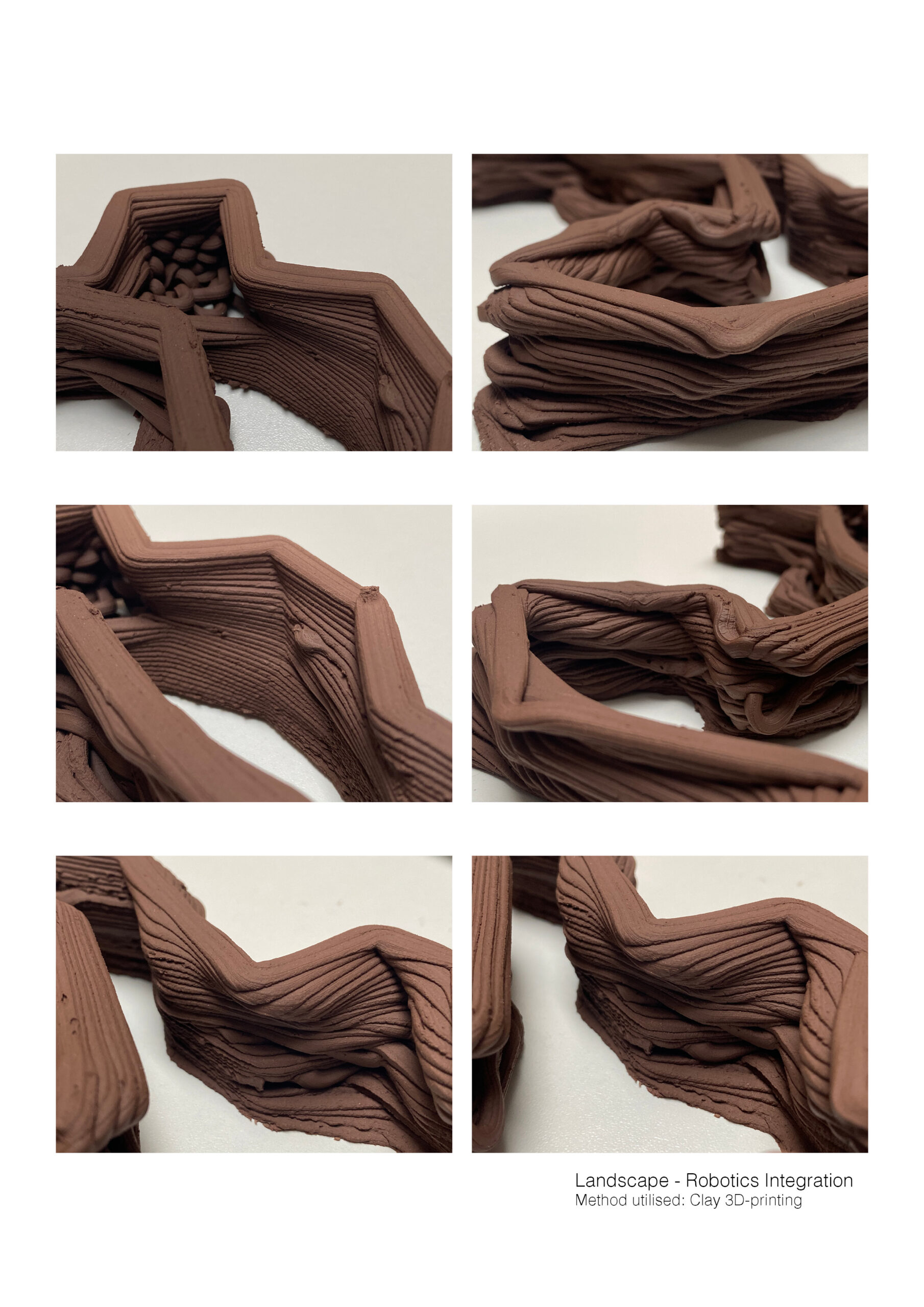
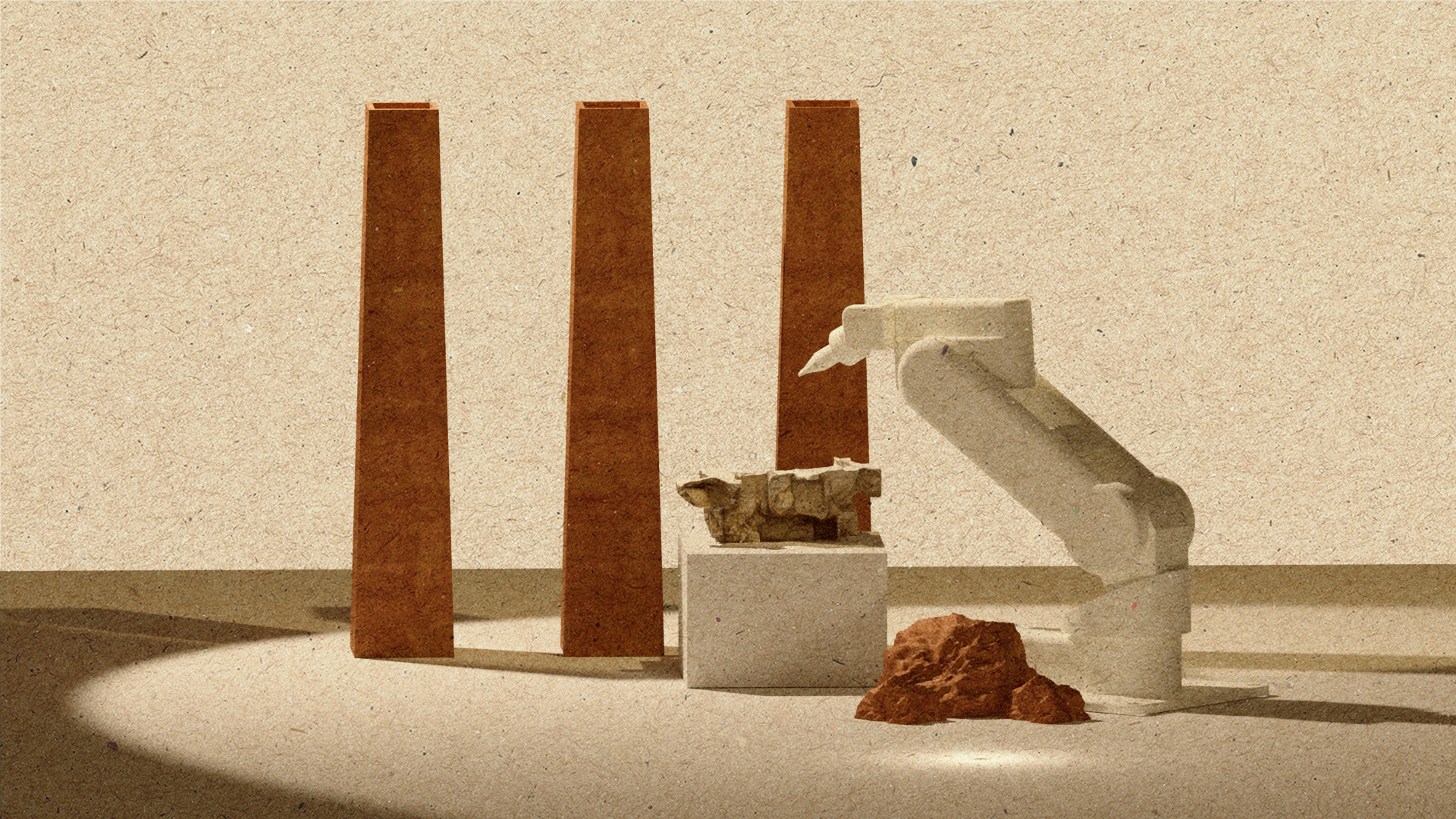
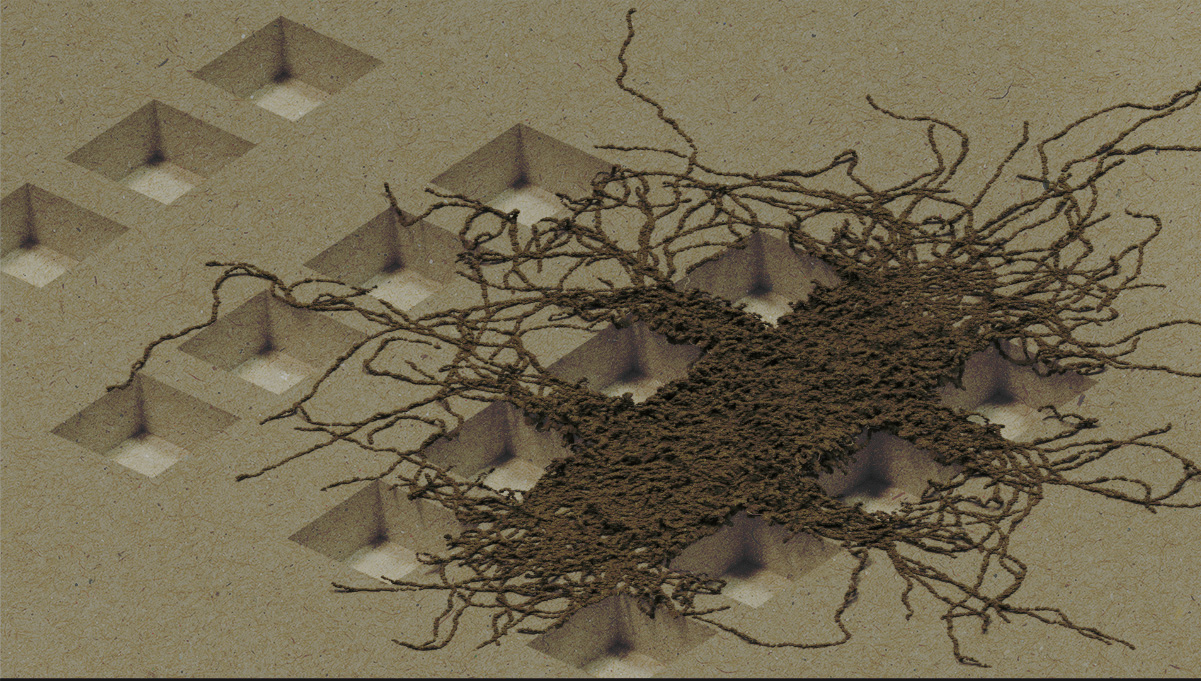
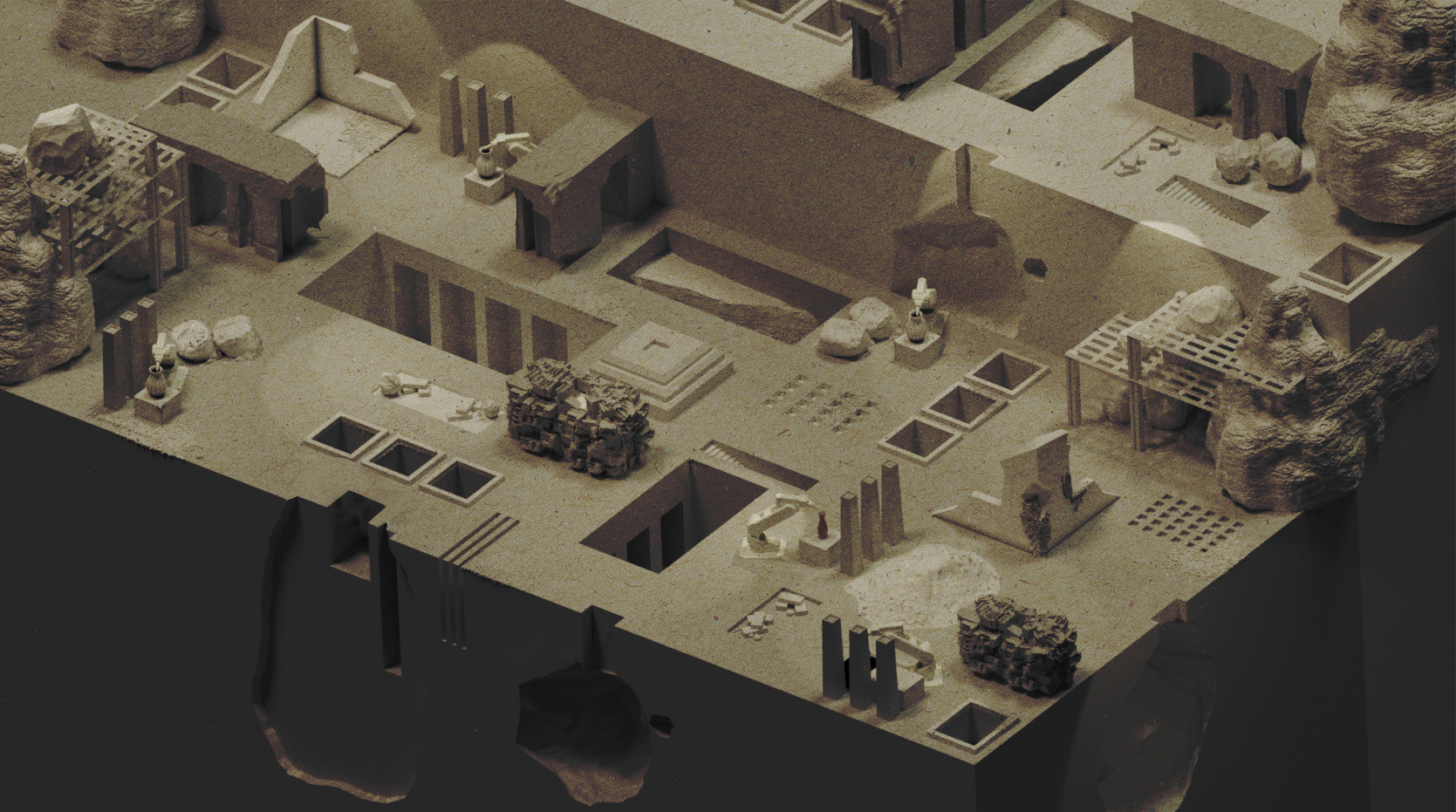
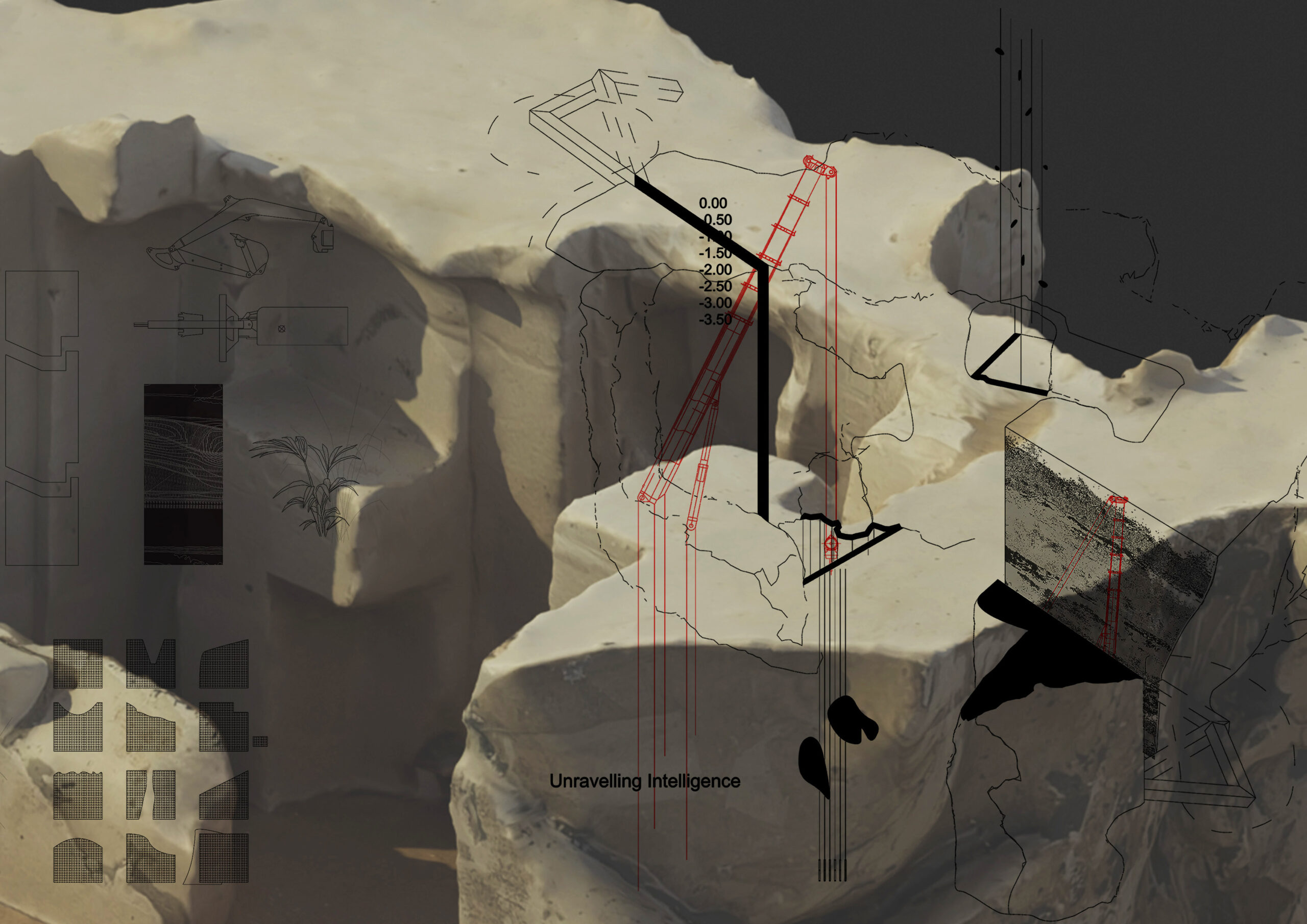
Environmental Archives: Investigating the cultural legacy of extracted earth
SOIL IS A RESOURCE that’s often overlooked, or used abundantly without consideration; culturally treated as infinite. This thesis turns the spotlight on soil, speculating on it as a medium of continuity and archiving, preserving previous cultural practices. It’s a witness to the past and simultaneously offers a glimpse into possible futures.
Through digital media, this project frames soil as a living substance that needs to be nurtured like any crop, and is vulnerable to depletion and degradation through misuse. It considers how the earth we extract from the ground is a material with a narrative embedded within it. It’s a legacy, a treasured possession that should be valued and celebrated rather than neglected.
The thesis argues that in reaction to the mutations witnessed in land, climate and atmosphere as a consequence of the Anthropocene, entanglement between humans and non- humans needs to be addressed to overcome the ideology of exceptionalism of the human race over all other beings.
This ideology challenges the way we think about the environment as a field of separate entities each working on their own, but rather sets a framework to think about the environment as an interconnected system. Therefore, extractive processes are analysed and foregrounded as explicit evidence of how consumed and overexploited our environment has become, and consequently, raise empathy towards our relationship with the ground beneath us.

